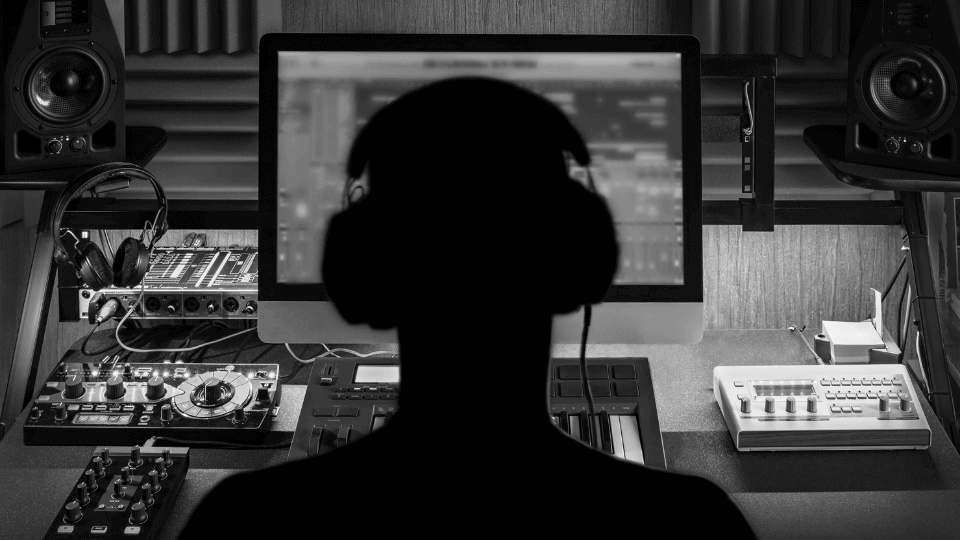In today’s fast-paced digital age, the music industry has experienced a monumental shift. With the rise of technology and the advent of streaming platforms, digital music has become the dominant force in how we consume and experience music. As a result, it’s crucial for aspiring musicians, producers, and industry professionals to stay up-to-date with the latest digital music trends. In this article, we will explore some of the key trends shaping the digital music landscape in 2021 and beyond.
1. Streaming Takes Center Stage
One of the most significant trends in digital music is the growing dominance of streaming platforms. Services like Spotify, Apple Music, and Amazon Music have revolutionized how we access and discover music. With millions of songs available at our fingertips, streaming has become the primary method of music consumption for the majority of listeners. As an artist or industry professional, it’s essential to understand the intricacies of streaming platforms and how to leverage them to reach a wider audience.
2. The Rise of Social Media
Social media has transformed the way we connect, communicate, and consume content. Platforms like Instagram, TikTok, and YouTube have become powerful tools for musicians to promote their music and engage with fans directly. Artists can now build a loyal following and gain exposure through viral challenges, live performances, and behind-the-scenes content. Understanding how to navigate social media effectively can be a game-changer for aspiring musicians looking to make their mark in the industry.
3. The Impact of Artificial Intelligence
Artificial Intelligence (AI) has made significant strides in various industries, and the music industry is no exception. AI-powered algorithms can now analyze vast amounts of data to predict listener preferences and recommend personalized playlists. This technology has also been used to create entirely new compositions, with AI-generated music making its way onto streaming platforms. As AI continues to develop, it will undoubtedly have a profound impact on the creation, distribution, and consumption of digital music.
4. Virtual Reality and Immersive Experiences
Virtual Reality (VR) and Augmented Reality (AR) have the potential to revolutionize the way we experience music. Artists can now create immersive virtual concerts, allowing fans to feel like they’re attending a live show from the comfort of their own homes. These technologies also offer new possibilities for music videos and visual storytelling, allowing artists to create captivating and interactive experiences for their audience.
5. The Power of Data Analytics
Data analytics has become an invaluable tool for artists and industry professionals alike. By analyzing streaming data, social media metrics, and audience demographics, musicians can gain valuable insights into their fan base and tailor their marketing strategies accordingly. Data-driven decision-making has become a fundamental aspect of the modern music industry, enabling artists to connect with their audience on a deeper level and make informed career choices.
6. Collaborations and Cross-Genre Fusion
In today’s digital music landscape, collaborations between artists from different genres have become increasingly common. These collaborations not only allow artists to experiment with new sounds but also help them reach wider audiences and expand their fan base. The blending of genres has become a catalyst for innovation, giving rise to exciting and unique musical styles that defy traditional categorization.
7. The Importance of Music Education
As the digital music landscape continues to evolve, the need for music education and industry-specific training becomes more apparent. Institutions like New York University (NYU) and Parsons School of Design offer programs that equip aspiring musicians and industry professionals with the skills and knowledge needed to navigate the ever-changing music industry. Additionally, online courses like those offered by Yellowbrick provide accessible and comprehensive education for aspiring music professionals.
In conclusion, the digital music landscape is constantly evolving, driven by advancements in technology and changing consumer behaviors. Aspiring musicians and industry professionals must stay abreast of the latest trends to navigate this dynamic industry successfully. From streaming and social media to AI and immersive experiences, understanding and embracing these trends will undoubtedly play a crucial role in shaping the future of digital music. Whether you’re an artist, producer, or industry professional, embracing these trends and adapting to the digital music landscape will be key to success in the industry.
Key Takeaways:
- Streaming platforms like Spotify and Apple Music have become the primary method of music consumption, making it essential for artists and industry professionals to understand and leverage these platforms.
- Social media platforms such as Instagram and TikTok offer powerful tools for music promotion and fan engagement, allowing artists to build a loyal following and gain exposure.
- Artificial Intelligence (AI) is transforming the music industry by analyzing data to predict listener preferences and creating AI-generated music.
- Virtual Reality (VR) and Augmented Reality (AR) provide immersive experiences for fans, allowing artists to create virtual concerts and interactive music videos.
- Data analytics plays a crucial role in understanding audience demographics and tailoring marketing strategies for success.
- Collaborations between artists from different genres and the blending of genres are driving innovation in the digital music landscape.
- Music education and industry-specific training are vital for aspiring musicians and industry professionals, with institutions like NYU and online courses like those offered by Yellowbrick providing valuable resources.
To stay ahead in the ever-evolving digital music landscape, it is crucial to embrace these trends and adapt to the changing industry. By understanding the power of streaming, social media, AI, VR, data analytics, and collaborations, aspiring musicians and industry professionals can navigate the digital music landscape successfully. For those looking to further their knowledge and skills in the music industry, consider taking the NYU x Billboard | Music Industry Essentials online course and certificate program offered by Yellowbrick. This comprehensive program will equip you with the necessary tools and insights to thrive in the dynamic world of digital music.




